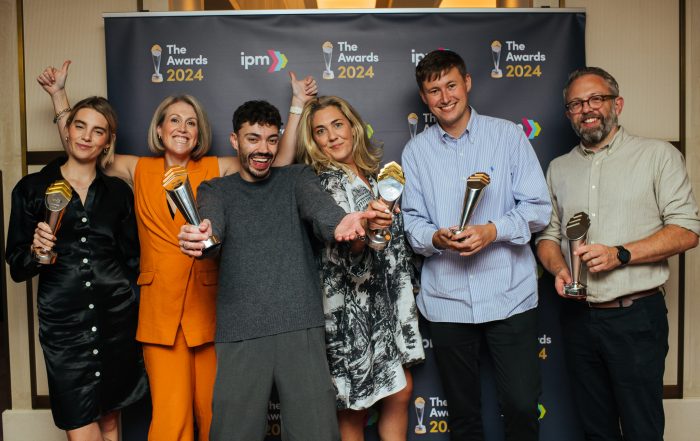Unlock the secrets to risk-free promotions with insights from the latest IPM webinar. Discover the effectiveness of instant win promotions, the surge in QR code entries, and the importance of optimal prize odds with IMI International. Did you know that 27 million Brits enter promotions for a chance to win? Uncover strategies to manage promotional risk with experts from Halo Promo Risk and Mando, including predictive modelling for budget control and fixed-fee risk management solutions. Understand why bigger isn’t always better in prizes, and enjoy further insights from the iconic 19 Crimes’ instant win promotion, where finding a winning cork inside wine bottles offered a share of £100,000. Concluding with insights from Mando’s ‘What Brits Want from Promotions 2.0‘ whitepaper, this recap equips you with the tools necessary to eliminate risk from your promotional rewards.


Unlock the Secret to Risk-Free Promotions
Unlock the secrets to risk-free promotions with insights from the latest IPM webinar. Discover the effectiveness of instant win promotions, the surge in QR code entries, and the importance of optimal prize odds with IMI International. Did you know that 27 million Brits enter promotions for a chance to win? Uncover strategies to manage promotional risk with experts from Halo Promo Risk and Mando, including predictive modelling for budget control and fixed-fee risk management solutions. Apply these concepts to real-world examples like Samsung’s TV giveaway during the Rugby World Cup and a campaign offering free beer every time a substitute scored a goal. Understand why bigger isn’t always better in prizes, and enjoy further insights from the iconic 19 Crimes’ instant win promotion, where finding a winning cork inside wine bottles offered a share of £100,000. Concluding with insights from Mando’s ‘What Brits Want from Promotions 2.0‘ whitepaper, this recap equips you with the tools necessary to eliminate risk from your promotional rewards.

27 Million Brits Prove Power of Promotions
Victor Kok, Director of IMI International, starts the session with fresh insights into the effectiveness of various promotional mechanics. He highlights that 60% of Brits (18 – 65 yrs old), or approximately 27 million people, participate in promotions annually. Online entry has increased in participation, while instant win promotions remain the most effective, requiring the least effort and driving maximum participation and purchase rates. QR code entries have surged since COVID-19, now at 45%, due to their ability to conveniently bridge physical and digital spaces. Meanwhile, more complex methods like downloading an app or entering via Instagram reveal significant reductions in promotional participation, with notable differences across generations. Victor unpacks optimal prize odds, suggesting a one in ten chance is the ultimate balance between impact and feasibility. He advises against using discounts as prizes, recommending instead a variety of prizes, including a grand prize, frequency prizes, and risk-managed prizes.
27 Million Brits Prove Power of Promotions
Victor Kok, Director of IMI International, starts the session with fresh insights into the effectiveness of various promotional mechanics. He highlights that 60% of Brits (18 – 65 yrs old), or approximately 27 million people, participate in promotions annually. Online entry has increased in participation, while instant win promotions remain the most effective, requiring the least effort and driving maximum participation and purchase rates. QR code entries have surged since COVID-19, now at 45%, due to their ability to conveniently bridge physical and digital spaces. Meanwhile, more complex methods like downloading an app or entering via Instagram reveal significant reductions in promotional participation, with notable differences across generations. Victor unpacks optimal prize odds, suggesting a one in ten chance is the ultimate balance between impact and feasibility. He advises against using discounts as prizes, recommending instead a variety of prizes, including a grand prize, frequency prizes, and risk-managed prizes.
Promotions are effective across all generation, Victor highlighted generational differences in promotional engagement with Millennials the most active participants in promotions, followed by Gen X and baby boomers, while Gen Z has the lowest engagement rates. This demographic prefers digital and gamified experiences and is highly responsive to promotions integrated into their digital ecosystem, such as mobile apps or social media platforms. They are also more likely to participate in promotions offering experiential rewards rather than just financial incentives. Victor pointed out that despite these differences, simplicity and immediacy are crucial for all. He further explains that overly large prizes can sometimes be perceived as unattainable and deter participation. For instance, while a prize of £10 million might seem attractive, many consumers may view it as unrealistic. Prizes should be appealing enough to attract interest but also perceived as realistically attainable to encourage actual participation.
Promotions are effective across all generation, Victor highlighted generational differences in promotional engagement with Millennials the most active participants in promotions, followed by Gen X and baby boomers, while Gen Z has the lowest engagement rates. This demographic prefers digital and gamified experiences and is highly responsive to promotions integrated into their digital ecosystem, such as mobile apps or social media platforms. They are also more likely to participate in promotions offering experiential rewards rather than just financial incentives. Victor pointed out that despite these differences, simplicity and immediacy are crucial for all. He further explains that overly large prizes can sometimes be perceived as unattainable and deter participation. For instance, while a prize of £10 million might seem attractive, many consumers may view it as unrealistic. Prizes should be appealing enough to attract interest but also perceived as realistically attainable to encourage actual participation.
News
Roaring for Change: Duncan McNair on the Future of Animal Tourism
Duncan McNair, CEO of STAE, discusses the transformative Animals Low-Welfare Activities Abroad Act, set to reshape how animals are treated in tourism.
Making Memories Matter in Travel Promotions 2024
Cloud Nine Incentives unpack the evolving travel landscape—from TikTok’s role as a digital travel guide to the growing demand for authenticity.
IPM Award Winners 2024 Announced: The Best in Promotional Marketing
Celebrate the stars of promotional marketing at the IPM Awards 2024, where creativity, innovation, and impact take centre stage. Explore all the winners from this year's IPM Awards.
News
Roaring for Change: Duncan McNair on the Future of Animal Tourism
Duncan McNair, CEO of STAE, discusses the transformative Animals Low-Welfare Activities Abroad Act, set to reshape how animals are treated in tourism.
Making Memories Matter in Travel Promotions 2024
Cloud Nine Incentives unpack the evolving travel landscape—from TikTok’s role as a digital travel guide to the growing demand for authenticity.
IPM Award Winners 2024 Announced: The Best in Promotional Marketing
Celebrate the stars of promotional marketing at the IPM Awards 2024, where creativity, innovation, and impact take centre stage. Explore all the winners from this year's IPM Awards.





